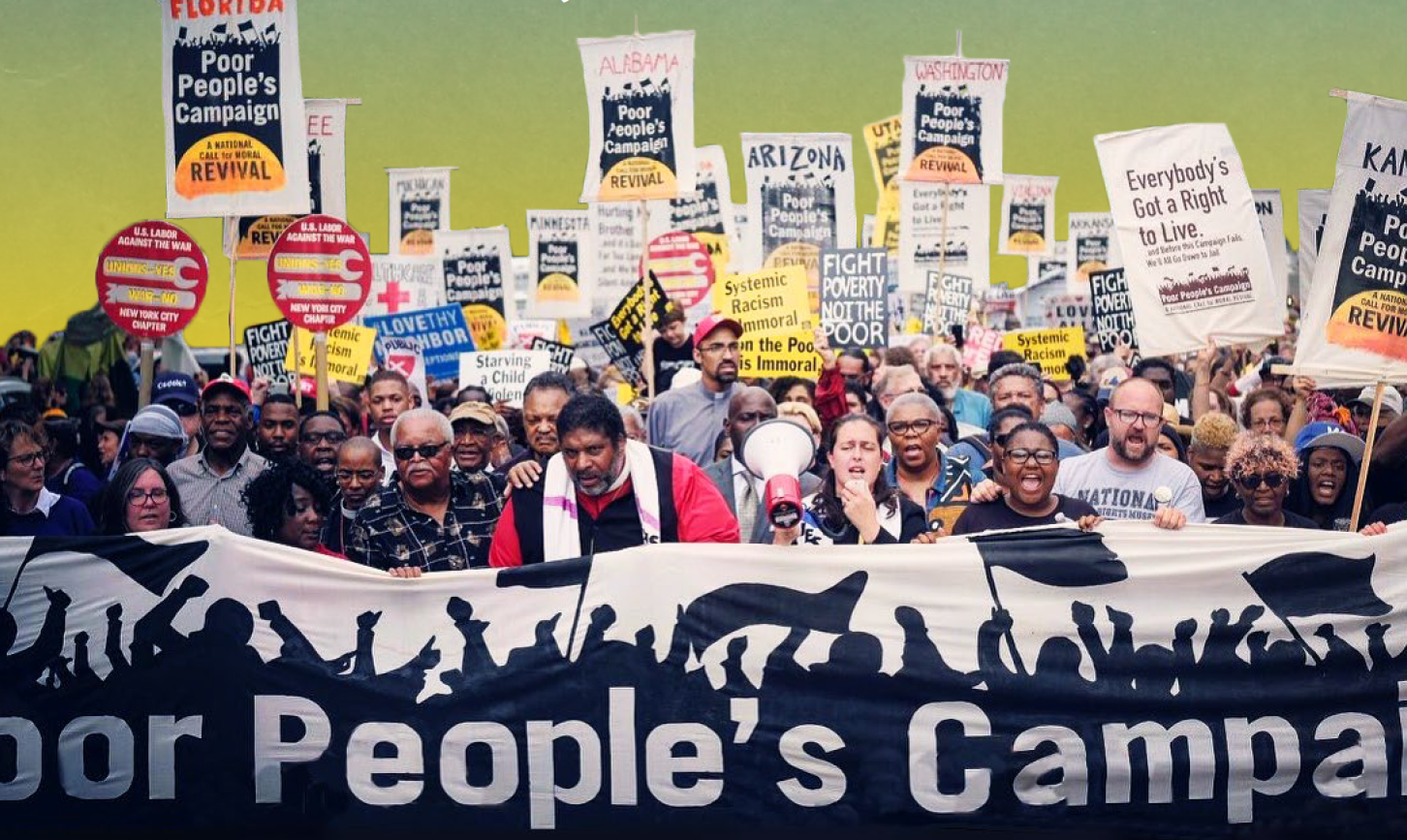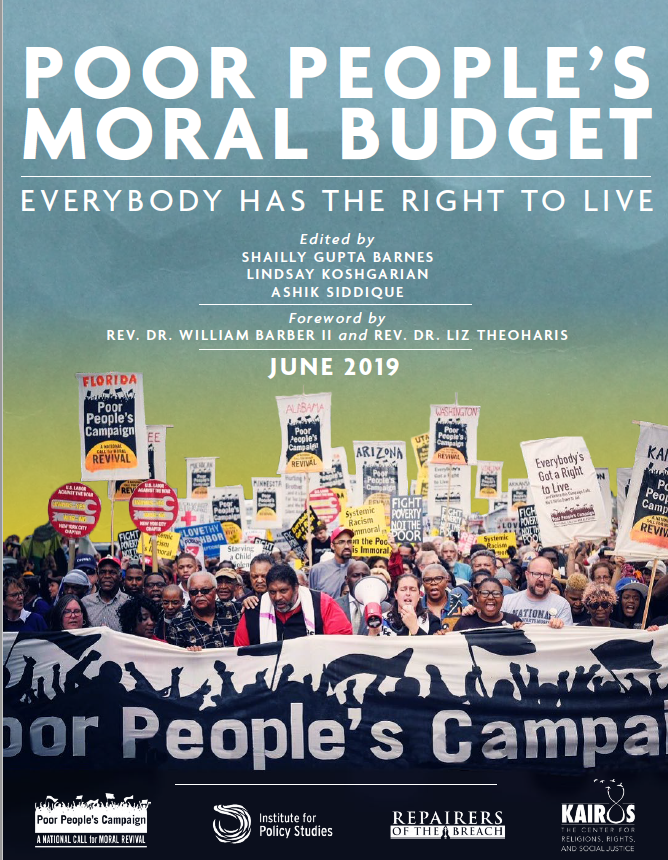Introducing the Poor People's Moral Budget: Everybody Has the Right to Live
By
Ashik Siddique
,
Lindsay Koshgarian
Posted:
|
Budget Process,
Education,
Health Care,
Military & Security,
Social Insurance, Earned Benefits, & Safety Net,
Taxes & Revenue

Health care for all. Affordable college. Clean energy. Inequality. Poverty. Systemic racism.
They say we can’t afford to solve our most pressing problems.
Today, National Priorities Project is proud to be joining hundreds of poor people and activists from all over the country at the Poor People’s Campaign Congress as we launch an in-depth, ambitious and wide-reaching report to say: yes we can.
Over 50 years ago, Rev. Dr. Martin Luther King, Jr and allies announced a plan to bring together poor people from across the country for a new march on Washington: the Poor People's Campaign of 1968, which set out demands for nothing less than the eradication of poverty.
What would it take to eradicate poverty in 2019?
That's the question we set out to answer in this new report from National Priorities Project and our colleagues at the Institute for Policy Studies, together with the Poor People’s Campaign, the Kairos Center, and Repairers of the Breach: the Poor People's Moral Budget: Everybody Has the Right to Live.
Since launching last year, the Poor People's Campaign laid out a list of demands that present a comprehensive response to the systemic racism, poverty, ecological devastation, militarism, and war economy plaguing the United States today. In the 115 pages of the Moral Budget, we quantify major costs and benefits of these demands, grouped broadly into seven critical areas of the Poor People’s Moral Agenda: 1) democracy and equal protection under the law; 2) domestic tranquility; 3) peace and the common defense; 4) life and health; 5) the planet; 6) our future; and 7) an equitable economy.
Above all, our report emphasizes that the United States has abundant resources for an economic revival that moves us toward establishing a moral economy. That includes:
- $350 billion in annual military spending cuts that would make the nation and the world more secure;
- $886 billion in estimated annual revenue from fair taxes on the wealthy, corporations, and Wall Street; and
- Billions more in savings from ending mass incarceration, addressing climate change, and meeting other key campaign demands.
Policymakers have always found resources for their true priorities. It's critical that policymakers redirect these resources to establish justice and to prioritize the general welfare instead.
Check out the Moral Budget report website, read our key findings, and download the full report here.
